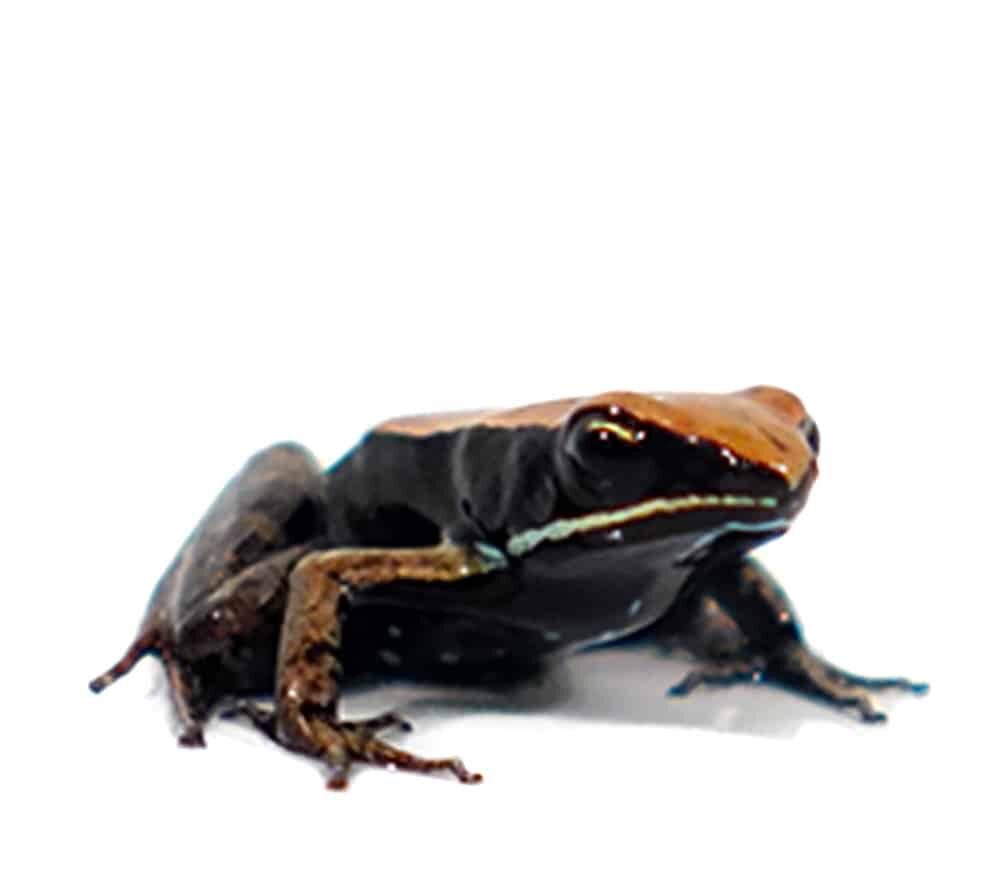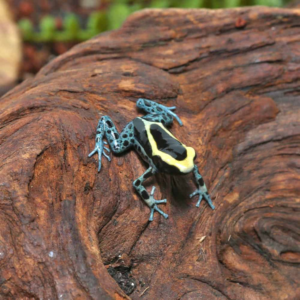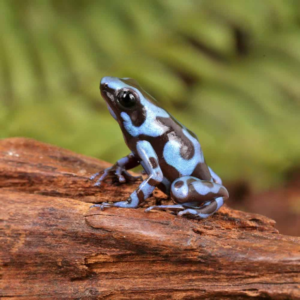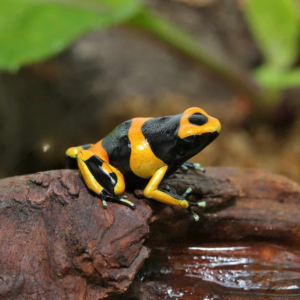Baby Golden Mantella For Sale
The Golden Mantella (Mantella aurelia) is a strikingly beautiful amphibian endemic to the wetlands and rainforests of Madagascar. This petite frog, measuring about 2 to 3 centimeters in length, is notable for its vibrant yellow to orange coloration, which serves as a warning to potential predators about its toxicity. The Golden Mantella inhabits a specific niche within the tropical ecosystem, favoring areas with abundant vegetation and stagnant water, where it engages in activities such as foraging for insects and breeding. Its bright coloration is a survival strategy known as aposematism, where the vivid appearance of the frog signals its unpalatability, deterring birds and other predators.
The conservation status of the Golden Mantella is of growing concern. Due to habitat destruction, primarily from deforestation, agriculture, and urbanization, their populations have significantly declined. The International Union for Conservation of Nature (IUCN) recognizes this species as “Critically Endangered,” highlighting a pressing need for conservation efforts. Protecting their natural habitat is essential not only for the survival of the Golden Mantella but also for maintaining the ecological balance of Madagascar’s unique ecosystems. Local conservation initiatives focus on habitat restoration, the establishment of protected areas, and community engagement to reduce human impact on these fragile environments.
In addition to its ecological significance, the Golden Mantella plays a vital role in environmental education and research. This species is often used in studies related to amphibian biology, toxicology, and conservation strategies, making it an important model organism for understanding broader ecological principles. Its plight has also galvanized conservationists and nature enthusiasts, encouraging sustainable tourism and advocacy efforts aimed at protecting Madagascar’s rich biodiversity. The Golden Mantella serves as a poignant reminder of the fragile interconnection within nature and the responsibility we share in preserving our planet’s unique species for future generations.





Reviews
There are no reviews yet.